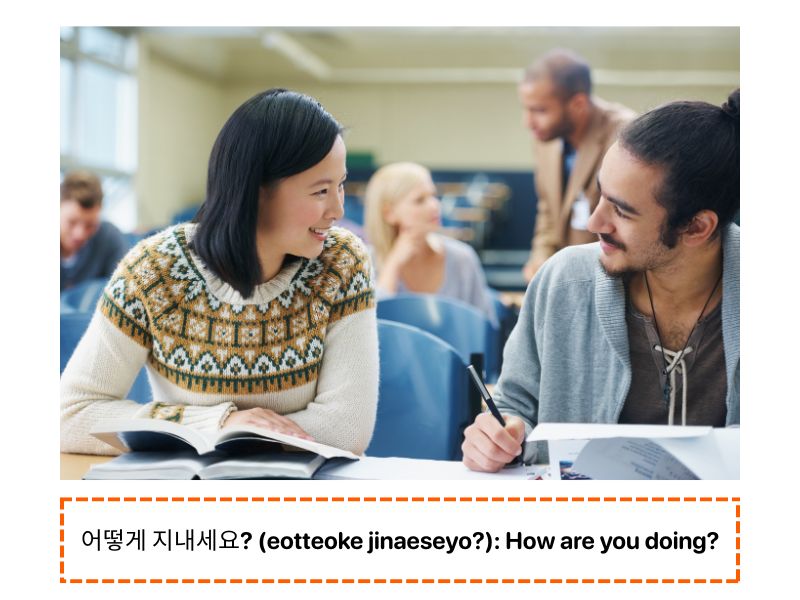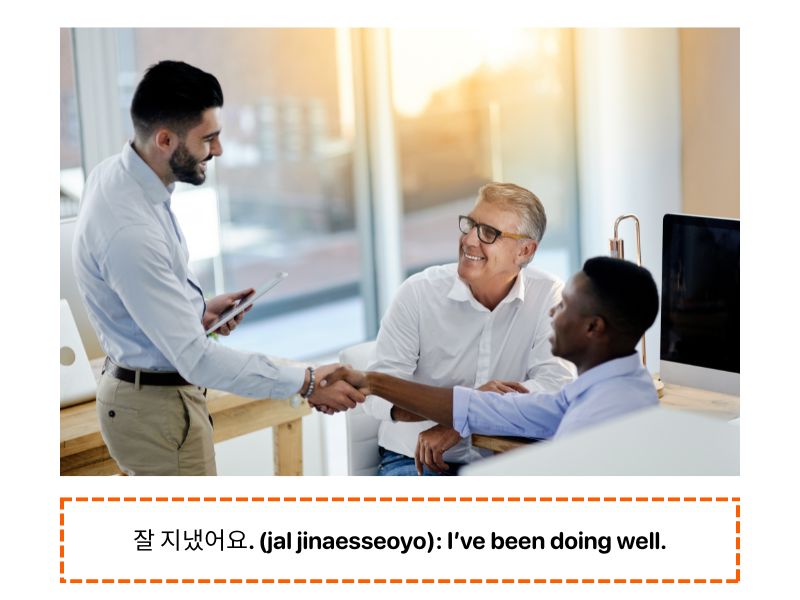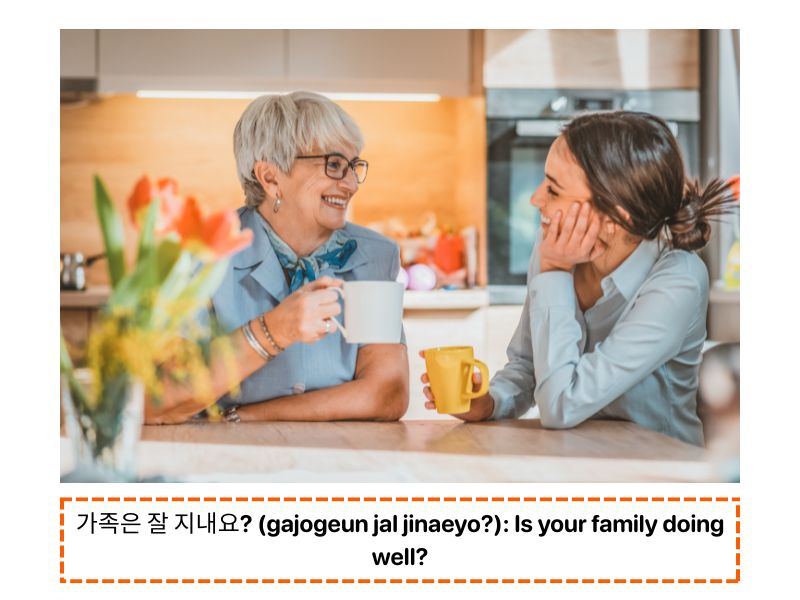The Most Common Way to Say How Are You in Korean

The most standard way to say how are you in Korean language is:
- 잘 지냈어요? (jal jinaesseoyo?): Have you been well?
잘 (jal) means “well” and 지냈어요 (jinaesseoyo) means “have spent (time).” Together, they form a polite way to ask if someone has been doing well. This version is polite and appropriate for most situations, especially with people you’re not super close to.
Example:
- 오랜만이에요! 잘 지냈어요? (It’s been a long time! How have you been?)
If you’re wondering how are u in Korean when chatting informally, you can simply drop the polite ending:
- 잘 지냈어? (jal jinaesseo?) (Have you been well? – informal)
Other Ways to Ask How Are You In Korean

Beyond 잘 지냈어요, there are several other expressions you can use depending on the situation.
어떻게 지내세요? (eotteoke jinaeseyo?)
Meaning: How are you doing?
- Slightly more formal and often used when checking in with colleagues or elders.
요즘 어때요? (yojeum eottaeyo?)
Meaning: How’s it going these days?
- 요즘 (yojeum) means “these days” and 어때요 (eottaeyo) means “how is it?”
- Great for casual conversation about someone’s current life or work.
건강은 어때요? (geongangeun eottaeyo?)
Meaning: How’s your health?
- A thoughtful question, especially relevant if someone has been sick or during cold seasons.
Using different versions of how are you in Korean helps keep your conversations more dynamic and natural.
Common Responses to “How Are You”

Knowing how to ask is only half the battle—you’ll want to understand the answers too! Here are common ways Koreans might respond:
잘 지냈어요. (jal jinaesseoyo.)
Meaning: I’ve been doing well.
그저 그래요. (geujeo geuraeyo.)
Meaning: So-so. / Not bad.
아주 좋아요! (aju joayo!)
Meaning: Very good!
If you’re asked how are u in Korean, a simple 잘 지냈어요 will always work, but having a few extra options makes you sound much more fluent.
Asking Follow-up Questions

After someone replies to your how are you in Korean language question, it’s polite to show interest by asking more. Here are some easy follow-ups:
가족은 잘 지내요? (gajogeun jal jinaeyo?)
Meaning: Is your family doing well?
요즘 바빠요? (yojeum bappayo?)
Meaning: Are you busy these days?
새로운 소식 있어요? (saeroun sosik isseoyo?)
Meaning: Any new news?
Showing curiosity about someone’s life beyond just “how are you” helps build stronger connections, especially in Korean culture where relationships are highly valued.
Now you know how to confidently say how are you in Korean in various situations! Whether you’re speaking formally with 잘 지냈어요, casually with 잘 지냈어, or switching it up with 어떻게 지내세요, you’ll be ready to start any conversation smoothly. Plus, knowing how to respond and follow up will make your Korean conversations feel even more natural.
Next time you wonder how are you in Korean language, remember: it’s not just about asking, it’s about genuinely connecting!